Synthetic Biology FSP

March 2019

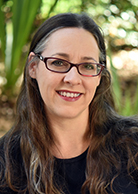 |
Welcome to the SynBio FSP’s first eNewlsetter for 2019. I hope you all had a wonderful end of year break and have started the new year well.
Firstly I’d like to thank everybody involved in the fantastic SynBio FSP Workshop held in November last year. It was an amazing opportunity to not only showcase the breadth of work happening across our Application Domains but also to connect in person with the many wonderful individuals that keep our Future Science Platform performing at such a high level.
I received many positive comments about the conference and our work both in person and afterwards, and it was great to see so much communication, relationship building and potential new research collaborations coming from it.
The FSP continues to grow: it is now a $60 million research and development program with almost 230 people directly involved in over 60 projects. We welcomed 10 new PhD students earlier this year who were successful in winning PhD Top-Up scholarships (see news item below). We work across six of CSIRO’s Business Units and partner with 17 Australian universities, three Australian medical research institutes, 22 international universities and three international research agencies.
Our BioFoundry is gathering momentum and our facility staff are fielding lots of enquiries. We have ordered more instruments and will be hiring new staff to expand shortly. More in the Foundation Technologies Application Domain update below.
In response to our rapid growth, we are restructuring and expanding the staff support profile of the SynBioFSP. Advertisements are currently open for a dedicated Project Manager and an Assistant/Deputy FSP Leader. More in the ‘Opportunities’ section below.
A Business Planning Workshop was held in January 2019 where the outcomes of the Workshop were reviewed, and some frame-working was undertaken to move towards growing internal capability, identifying projects closest to being ready for commercialisation (2-3 projects for each Application Domain), and on PhD and Fellowship programs. We will continue to seek your input on strategy development as we consolidate and move along the path towards the SynBioFSP’s long term vision of realising impact from synthetic biology.
This year we are co-hosting the Synthetic Biology Australasia SBA2019 conference with University of Queensland (UQ) on 14th-16th October. On the 17th October we will hold an open SynBioFSP showcasing and networking event. These events replace the 2-day SynBioFSP workshop we have held on previous years, and we anticipate that a lot of SynBioFSP science will be presented during the SBA 2019 conference. More on this to come, but please mark both events in your diaries now!
Our IP portfolio is developing through internal and collaborative projects. The first IP is starting to emerge already – a promising outcome considering that almost all of our projects began from a ‘standing start’. We are also seeing industry coming to us to collaborate – including some of the largest corporations in the world.
On the horizon, we are working towards establishing a BioIncubator: a multi-stakeholder transdisciplinary collaborative facility designed to create a translational environment for advanced synthetic biology and bioengineering technologies. This will underpin our long-term vision of building synthetic biology-based industry in Australia. Watch this space for more, and get in touch if you want to be involved!
We will be formally reviewed by both our International Advisory Panel and an external CSIRO review panel later this year. Quite a lot of work goes into preparing the review documentation and the SynBioFSP team will very much appreciate your help in providing information as we work on this.
Finally, I have been contributing to the United Nations Convention on Biological Diversity (CBD) Ad Hoc Technical Expert Group (AHTEG) Online Open Ended Forum for Synthetic Biology. The ACOLA synthetic biology report is getting a number of positive comments in this forum, which is great to see and demonstrates the impact the report is having on international synbio policy.
I look forward to working with all of you this year and seeing our FSP continue to grow.
All the best,
Claudia
Assoc. Professor Claudia Vickers
Synthetic Biology Future Science Platform Leader
CSIRO
Foundation Technologies (Claudia Vickers)
The CSIRO-UQ BioFoundry is well underway, with several test projects developing different automation protocols and working with different organisms/systems. One of the first projects is a collaboration with the new CSIRO Artificial Intelligence/Machine Learning (AI/ML) FSP to train ML algorithms on large Foundry-developed data sets. Community interest in the Foundry is strong and we are expanding operations with more equipment and new staff hires to be advertised shortly. We are currently adding some test capabilities including advanced microplate reader and flow cytometer for basic cell characterization. For more advanced testing we have TEST capabilities through Metabolomics Australia and the Australian Institute for Bioengineering and Nanotechnology facilities. Together these capabilities come under the umbrella of the Australian Facility for Advanced Biomanufacturing. Biofoundries represent a paradigm shift with respect to how we do experimental design for advanced bioengineering, so a key part of each project is consultation services provided by Foundry staff. A website will soon be available; for more information contact Dr Maciej Holowko and Dr Janet Reid on SynBioFoundry@csiro.au.
SynBioFSP Director Claudia Vickers is currently on the Expert Working Group for a scoping study to establish and manage a national synthetic biology research infrastructure capability, as outlined in the Federal Government's Research Infrastructure Investment Plan (released in the 2018−19 Budget). The study was commissioned by the Department of Education and Training, and BioPlatforms Australia provides secretariat services. Community consolations have been held in major capital cities and drafting is well underway. If you would like to provide input, please contact Natalie Curach (ncurach@bioplatforms.com).
Environment and Biocontrol (Owain Edwards)
Many of the projects in the Environment and Biocontrol domain face challenges in adapting engineering technologies to non-model organisms. Congratulations to Caitlin Cooper (AAHL, CSIRO) for achieving successful CRISPR gene editing for the first time in the cane toad.
In November, Australia hosted for the first time the annual meeting of Genetic Biocontrols of Rodents (GBIRd) consortium in Exmouth, WA, which included a field trip for two days to Thevenard Island to observe problem mouse populations. A report on the meeting and field trip can be read here. The SynBio FSP was also represetned at a GBIRd stakeholder workshop this month in Raleigh, NC, by Owain Edwards (Environment and Biocontrol) and Aditi Mankad (Maximising Impact).
Chemicals and Fibres (Colin Scott)
Two of the projects in the Chemicals & Fibres Application Domain have recently published exciting work that have revised our understanding of important metabolic processes in bacteria and microalgae.
In a collaborative project between CSIRO and the ANU, the unusual cofactor F420 has been produced heterologously for the first time (in E. coli). F420 is a dazoflavin and is essential for methogensis and a number of other microbial process. While engineering E. coli to produce F420, the team noticed that one of the key intermediates though to be involved in the biosynthetic pathway incorrectly identified, and another intermediate had been overlooked entirely. The preprint of this work is at BioRXv (https://www.biorxiv.org/content/10.1101/470336v2). F420 has unusual chemical properties (including a very low redox potential, ~ -320 mV), and making it in E. coli will let us use E. coli to do biotransformations that could previously only be done with slow growing, difficult to culture Archaea and bacteria.
FSP Fellow Michele Fabris recently published on a novel pathway for sterol production in diatoms. Key to the new pathway was a previously unknown squalene epoxidase. While plants, fungi and animals share homologous sterol biosynthesis pathways (using homologous squalene epoxidase enzymes), diatoms and other microalgae appear to have independently evolved a distinct enzyme to conduct this reaction. In addition to rewriting our understanding of the evolution of this fundamental eukaryotic metabolic pathway, this work may provide a unique target for controlling toxic algal blooms. The team (from UTS, UQ, and VIB-Ghent University) published this work in Nature Microbiology (https://www.nature.com/articles/s41564-018-0305-5).
Health and Medicine (Andy Bean)
The Health and Medicine Application Domain is the newest application domain in the SynBioFSP. Maintenance of good health, along with prevention and treatment of disease, is an enormous public and private expense in Australia. Synthetic biology has very significant potential to improve human and animal health through novel preventative treatments such as vaccines, diagnostics approaches such as synthetic biology-enabled reporter systems, and therapeutics such as antivirals and genetic therapies. Moreover, uptake of advanced technologies in health is much higher for medical applications than in other areas. The potential for impact using synthetic biology in the Health and Medicine area is therefore very high.
The SynBio FSP Health and Medicine Application domain is directed towards development of advanced vaccines, therapeutics, diagnostics, and the bio-manufacturing of these reagents. Most of our projects are at a relatively early stage, however we are starting to engage with interested industry partners for development of bespoke cell lines. The Platform Z project, which leveraged off CSIRO’s expertise in avian engineering, is looking to spin out; the SynBioFSP project is developing technology aligned with this platform which will provide significantly expanded bio-production capabilities for egg-based bio-manufacturing.
Maximising Impact (Aditi Mankad)
The Maximising Impact (MI) team have started engaging directly with the public in our research activities, conducting public focus groups and launching our National Baseline Attitudes Survey.
Focus Groups: We conducted public focus groups in Brisbane, where we had members of the general public discuss seven potential synbio technologies using our custom-designed technology storyboards. These storyboards were developed by the MI team in collaboration with synbio technical scientists, as a tool to communicate complex technologies in a simple way. Participants were asked to consider their views towards proposed synbio technologies, articulating benefits, risks, key concerns, and governance preferences.
MI also launched our National Baseline Attitudes survey for synthetic biology in November. The survey was completed by approximately 8000 Australians, and each received one of the seven synbio technology storyboards, which they used then to complete the attitudinal survey. We also embedded an information-based experimental design within the survey, which was designed to measure whether public engagement opportunities and regulation information influenced levels of acceptance for these novel technologies. We are currently in the analysis phase, and hope to provide social science feedback to the technical science domains by the end of the financial year
Finally, the MI team have just implemented a Science Advisory Panel for the MI application domain, to ensure the robustness of our future science direction. It comprises both synbio governance and behavioural science experts from Australia and Internationally.
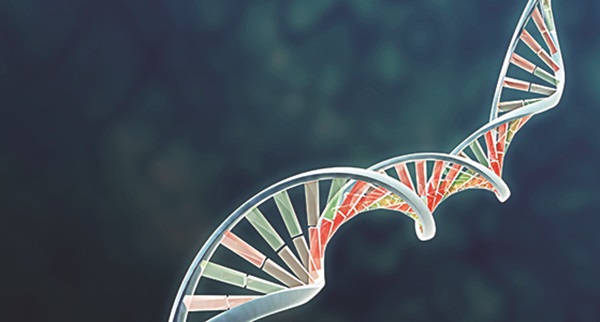
The FSP welcomes our 10 new PhD students for 2019. They are:
- Kai Peng (Macquarie University): Synthetic Endoplasmic Reticulum Morphology to Reshape Protein Production in Yeast
- Joel Hoong Zhang Lee (University of Adelaide): Engineering of P450 Enzymes in Functional Peroxydenases
- Claudia Moratti (University of Sydney): Synthetic biology approaches to hydrocarbon biosensors
- Benjamin Brown (Macquarie University): Development of SCRaMbLE technologies for the production of industrially relevant micro organisms
- James Kemp Heffernan (University of Queensland): Gas fermentation to valuable chemicals
- Benjamin Camm (University of Melbourne): Predicting and testing a gene drive in an invasive species
- Febrina Sandra (Macquarie University): Bioengineering a protein nanocage to disrupt the unique metabolic properties of the childhood cancer Neuroblastoma
- Andras Huvagner (Macquarie University): An ortholonal tRNA engineering project, alternative start codons (orthogonal)
- Marius Jessen (Queensland University of Technology): Engineering riboswitches in vivo to accelerate strain evolution of M.alcaliphilum 20Z for high value biomass
- Allesandro Satta (University of Queensland): Understanding Isoprenoid Metabolism in Cyanobacteria.
Please make sure you are familiar with our publication guidelines when it comes time to publishing your research. Guidelines are detailed in full in the FSP’s Guide for staff and affiliates on our team Confluence site. Please contact Lisa Devereaux (SynBioFSP@CSIRO.au) for a copy if you can’t access the site.
Here are some of the main things to remember:
When preparing your manuscript for publication you should include an affiliation to the FSP for FSP-funded projects, or for anyone whose salary is covered by FSP funding, by adding this affiliation to the title page of your manuscript:
‘CSIRO Synthetic Biology Future Science Platform’
This is in addition to any other affiliation you may have.
To acknowledge funding received from the FSP you should also add the following to the Acknowledgements section:
‘This work was funded through the CSIRO Synthetic Biology Future Science Platform.’ or ‘This work was funded in part through the CSIRO Synthetic Biology Future Science Platform.’
In addition, CSIRO requires that CSIRO-affiliated publications go through our ePublish system for review prior to publication in a journal. This is really important to help us track output from the FSP, especially as we go into our ‘deep dive’ reviews this year, so please take the time to enter your publications in this database. For university projects, your CSIRO Mentor or Application Domain Leader can assist.
Here is the step-by-step guide on using ePublish (CSIRO Intranet site).
If you need assistance during the submission process please contact epublishadmin@csiro.au
Please notify Lisa Devereaux Project Manager of all Publications when accepted and send a copy of the paper for our files.
CSIRO Library services are also offering to deliver a SynBio FSP short training on ePublish. If you would like to be attend please RSVP to lisa.devereaux@csiro.au
PS: remember if you’re speaking to media or wider general public about your work, you should be familiar with our public comment policy. If you have any questions about it please contact our new FSP communications advisor, Nick Kachel.

CSIRO Library Services provides all CSIRO staff with access to a wide range of information resources, and advice supporting the research lifecycle – from ideas to published output.
Contact us for help – we have a team of librarians actively willing and able to assist you, simply call 08 8303 8555 or email AskaLibrarian@csiro.au.
Have you got an ORCID ID? ORCID stands for Open Researcher and Contributor ID. ORCID is an international, not-for-profit organisation which provides researchers and scholars with a unique digital identifier (known as an ORCID iD) plus a system for linking their iD to their research activities and outputs throughout their career. It is really useful for promoting your research, and many publishers and funders are now asking researchers for their ORCID iD. If you don’t have an ORCID iD register for one - it’s quick, easy and free.
CSIRO staff find out about connecting your ORCID iD to CSIRO, so that your research outputs in CSIRO’s repositories will be updated to your ORCID record automatically.
Anne Freer is the Outreach Librarian assigned to the Synthetic Biology Future Science Platform. Let me know if you have any questions, or would like to find out how we can assist you with your research
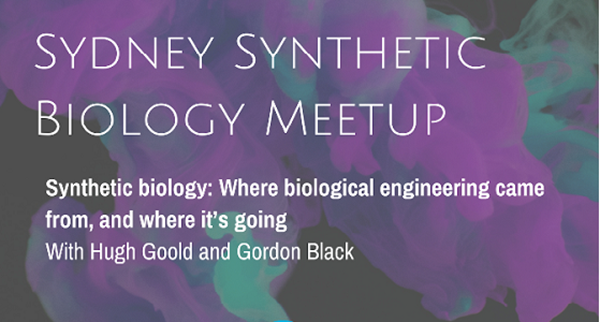
The SynBio FSP has sponsored Cicada Innovations to run a series of synthetic biology meetups in Sydney to bring together synbio scientists, investors and entrepreneurs. It is envisioned that the program will roll out to other capital cities in the future so if you are interested in hosting a meeting then please let us know. We are looking for SynBioFSP speakers to recommend for these networking events. Prospective speakers need to be comfortable and reasonably experienced speaking to a diverse audience (about half the audience will be non-scientific). Please email us (synbioFSP@csiro.au) if you are interested. Click here for more information.
Where: Cicada Innovations, 4 CORNWALLIS ST, SUITE 145, EVELEIGH NSW
When: Tuesday 2 April - 6:00pm to 8:00pm
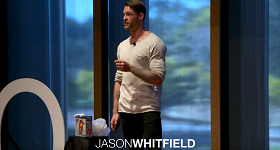 " After="" />
" After="" />
CSIRO SynBio Fellow Dr Jason Whitfield brings together his passion for sport and molecular curiosity in this TedX presentation. He explores the possibilities behind using Synthetic Biology to re-purpose the technology used in glucometers for sports anti-doping and high performance
 " After="" />
" After="" />
A SynBio FSP researcher, Dr Madeline Mitchell, has been named one of the 2019 Superstars of STEM by Science & Technology Australi is a Postdoctoral Fellow, Agriculture and Food and the Synthetic Biology FSP. She uses plant molecular physiology and biotechnology to develop novel crops for more sustainable agriculture.
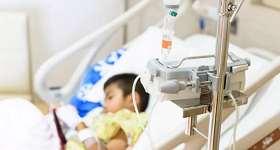 " After="" />
" After="" />
Synthetic biology is shaping up to be the dominant technology of this century, and Australia has made clear moves to be on board.
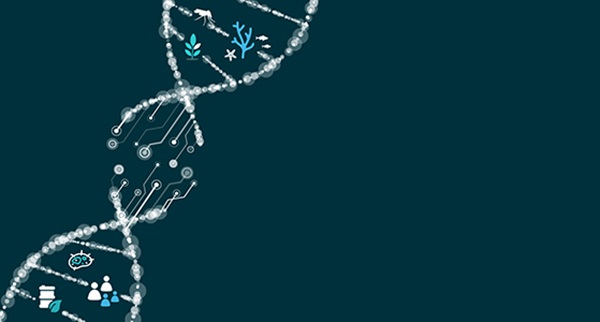
Job opportunities with the FSP
FSP Assistant and Deputy Leader
The Assistant / Deputy Leader will support the SynBioFSP Director to deliver on the strategic objectives of the FSP and support the rapidly growing program as it transitions from fast start-up mode to consolidation and long term impact. You will to support the FSP in wide ranging internal and external activities, including program management, strategic advice, negotiation, business development, and other activities. Applications close Sunday March 31, 2019.
The CSIRO SynBioFSP is an equal opportunities employer. We recognise output relative to opportunity as part of our selection process.
Synthetic Biology FSP Project Manager
The Project Manager will provide project management support to the Synthetic Biology Future Science Platform (SynBio FSP), hosted in CSIRO Land and Water. Duties include: Support the SynBioFSP Director and Application Domain Leaders by managing the administration of the SynBioFSP project portfolio; build relationships with Project Leaders to support their milestone delivery as per their project plans, contracts schedules, reporting requirements, budgets and administration as required; interact with a wide range of Internal and external stakeholders to ensure effective project management is delivered; maintain the active projects databases, newsletter and partners contact lists. Applications close Sunday March 31, 2019
The CSIRO SynBioFSP is an equal opportunities employer. We recognise output relative to opportunity as part of our selection process.
Bill & Melinda Gates Foundation Grand Challenges
The Bill & Melinda Gates Foundation is inviting grant proposals for the following Grand Challenges:
Applications will be accepted until Wednesday, April 10, 2019, 11:30am PDT.
For more information visit their website.
Modelling Community
SynBioFSP Modelling Community
‘Integrative Biological Modelling’ is one of the three SynBioFSP critical science domains. We would like to connect modelling scientists and students working across CSIRO and partner to establish a community of researchers with expertise / interests in the following areas:
Proposed objectives of the community of modellers would include but not limited to (1) establish a network of individual professionals in the field to initiate forums to share experiences and ask questions, (2) seek opportunities for developing internal and external collaborations, and (3) provide consultations to SynBioFSP teams for their design of experiments. If you are interested in joining, please contact Dr. Hadi Nazem-Bokaee at Hadi.Nazem-Bokaee@csiro.au.
Pollier, J., Vancaester, E., Kuzhiumparambil, U., Vickers, C.E., Vandepoele, K., Goossens, A. and Fabris, M. (2018) A widespread alternative squalene epoxidase participates in eukaryote steroid biosynthesis. Nat. Microbiol., 4, 226–233.
Vavitsas, K., Fabris, M. and Vickers, C.E. (2018) Terpenoid metabolic engineering in photosynthetic microorganisms. Genes., 9, 11.
Wallis, C.P., Richman, T.R., Filipovska, A., Rackham, O. Tighter ligand binding can compensate for impaired stability of an RNA-binding protein. ACS Chemical Biology (2018) DOI: 10.1021/acschembio.8b00424
Khaleque H, Vacher M, Gumulya Y, Boxall NJ, Carlson R, Peyton B, Santala V, Small I, Kaksonen AH. 2019. Constraint based metabolic flux analysis of Acidithiobacillus ferrooxidans under extreme environmental stresses. Australian Microbial Ecology Conference 11-13.2.2019, Perth, Western Australia. (Abstract and poster presentation). EP188702
Gumulya Y., Kaksonen A. 2018. Engineering resilience to biomining microorganisms. Australian Resources & Investment 12(3): 36-38. EP186864
Kaksonen AH. Boxall NJ, Gumulya Y, Khaleque HN, Morris C, Bohu T, Cheng KY, Lakaniemi A-M. 2018. Recent progress in biohydrometallurgy and microbial characterisation. Hydrometallurgy 180: 7-25. EP181421
Gumulya Y., Kaksonen A. 2018. Engineering resilience to biomining microorganisms. Australian Resources & Investment 12(3): 36-38. EP186864
Kaksonen AH. Boxall NJ, Gum
Gumulya Y, Boxall NJ, Khaleque HN, Santala V, Carlson RP, Kaksonen AH. 2018. In a quest for engineering acidophiles for biomining applications: challenges and opportunities. Genes 8, 116, doi:10.3390/genes9020116. EP18455
Gumulya Y, Khaleque HN, Boxall NJ, Inaba Y, Banta S, Peyton B, Carlson R, Santala V, Small I, Kaksonen AH. 2018. Designing salt and metal tolerant biomining microbes for extraction of valuable metals from low grade ores and metal containing wastes. Synthetic Biology Future Science Platform Workshop 29-30 November 2018, Sydney, Australia. EP189307
Gumulya Y, Boxall NJ, Khaleque HN, Peyton B, Carlson RP, Santala V, Small I, Kaksonen AH. 2018. Re-programming extremophiles for industrial applications. Astrobiology Australasia meeting. 25-26 June 2018, Rotorua, New Zealand. (Abstract and poster presentation)
Matthew Wilding, Colin Scott and Andrew C. Warden, Computer-Guided Surface Engineering for Enzyme Improvement, Scientific Reports, 2018, 8, 11998
Lygie Esquirol, Thomas S. Peat, Matthew Wilding, Jian-Wei Liu, Nigel G. French, Carol J. Hartley, Hideki Onagi, Thomas Nebl, Christopher J. Easton, Janet Newman and Colin Scott, An unexpected vestigial protein complex reveals the evolutionary origins of an s-triazine catabolic enzyme, Journal of Biological Chemistry, 2018, 293(20), 7880-7891
Lygie Esquirol, Thomas S. Peat, Matthew Wilding, Carol J. Hartley, Janet Newman and Colin Scott, A novel decarboxylating amidohydrolase involved in avoiding metabolic dead ends during cyanuric acid catabolism in Pseudomonas sp. strain ADP, PLOS One, 2018, 13(11), e0206949
Lygie Esquirol, Thomas S. Peat, Matthew Wilding, Del Lucent, Nigel G. French, Carol J. Hartley, Janet Newman and Colin Scott, Structural and biochemical characterization of the biuret hydrolase (BiuH) from the cyanuric acid catabolism pathway of Rhizobium leguminasorum bv. viciae 3841, PLOS One, 2018, 13(2), e0192736
Pouvreau B, Vanhercke T, Singh S (2018). From plant metabolic engineering to plant synthetic biology: the evolution of the design/build/test/learn cycle. Plant Science 273: 3-12. Invited review.
Stoddard, A and Rolland V. Which fluorescent tag to use in an acidic environment? Investigating the in vivo pH resilience of fluorescent proteins targeted to plant cell walls. Plant Direct, Volume3, Issue1, January 2019
Diaz, D., A. Care, and A. Sunna, Bioengineering Strategies for Protein-Based Nanoparticles. Genes (Basel), 2018. 9(7) DOI:10.3390/genes9070370
Rajab, N., Rutar, M., Laslett, A.L., and Wells, C.A. (2018). Designer macrophages: Pitfalls and opportunities for modelling macrophage phenotypes from pluripotent stem cells. Differentiation 104, 42–49.
Jacob Pollier, Emmelien Vancaester, Unnikrishnan Kuzhiumparambil, Claudia E. Vickers, Klaas Vandepoele, Alain Goossens and Michele Fabris (2018) A widespread alternative squalene epoxidase participates in eukaryote steroid biosynthesis. Accepted, Nature Microbiology. Cover article.
Konstantinos Vavitsas, Michele Fabris, and Claudia Vickers*. (2018) Synthetic Biology for terpenoid metabolic engineering in photosynthetic microorganisms. Accepted, Genes (invited review)
de Souza, Vinícius Fernandes; Niinemets, Ülo; Rasulov, Bahtijor; Vickers, Claudia E.; Duvoisin, Sergio Júnior; Araújo,Wagner L.; de Carvalho Gonçalves, José Francisco* (2018) Alternative carbon sources for isoprene emissions. Trends in Plant Science 23(12):1081-1101
Peng, B.-Y.; Nielsen, L.K.; Kampranis, S.; Vickers, C.E.* (2018) Engineered protein degradation of farnesyl pyrophosphate synthase is an effective regulatory mechanism to increase monoterpene production in Saccharomyces cerevisiae. Metabolic Engineering 47:83-93
Peng, B.-Y.*; Wood, R.; Nielsen, L.K.; Vickers, C.E. (2018) An expanded heterologous GAL promoter collection for diauxie-inducible over-expression in Saccharomyces cerevisiae. ACS Synthetic Biology 7(2):748-751.
Alonso-Gutierrez, Jorge; Koma, Daisuke; Hu, Qijun; Yang, Yuchen; Chan, Leanne Jade G.; Petzold, Christopher J.; Adams, Paul D.; Vickers, Claudia E.; Nielsen, Lars K.; Keasling, Jay D.; Lee, Taek Soon* (2018). Toward industrial production of isoprenoids in Escherichia coli: lessons learned from CRISPR-Cas9 based optimization of a chromosomally integrated mevalonate pathway. Biotechnology & Bioengineering 115(4):1000-1013.
Gagoski, D.; Shi, Z.; Nielsen, L.K.; Vickers, C.E.; Mahler, S.; Speight, R.; Johnston, W.; Alexandrov, K. (2017) Cell-free Pipeline for Discovery of Thermotolerant Xylanases and Endo-1,4-β-Glucanases. Journal of Biotechnology, 259:191-198
Vickers, C.E.*; Williams, T.C.; Peng, B.; Cherry, J. (2017) Recent advances in synthetic biology for engineering isoprenoid production in yeast. Current Opinion in Chemical Biology 40:47-56 (invited)
Peng, B.-Y.; Plan, M.R.; Carpenter, A.; Nielsen, L.K.; Vickers, C.E.* (2017) Coupling gene regulatory patterns to bioprocess conditions to optimize synthetic metabolic modules for improved sesquiterpene production in yeast. Biotechnology for Biofuels 10:43 DOI: 10.1186/s13068-017-0728-x
June 3-6: BIO 2019. Philadelphia
23-27 June: Synthetic Biology Engineering, Evolution and Design (SEED). New York city.
7-9 August: Plant Synthetic Biology 2019. San Jose, California
14-16 October: Synthetic Biology Australasia (more details TBC)